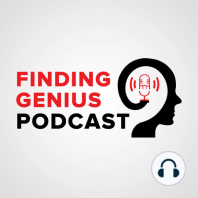41 min listen

A Social and Ethical Analysis of Alzheimer’s—Emily Largent, PhD, JD, RN—Emanuel & Robert Hart Assistant Professor of Medical Ethics and Health Policy,…
A Social and Ethical Analysis of Alzheimer’s—Emily Largent, PhD, JD, RN—Emanuel & Robert Hart Assistant Professor of Medical Ethics and Health Policy,…
ratings:
Length:
21 minutes
Released:
Jun 9, 2020
Format:
Podcast episode
Description
As an assistant professor at Perelman School of Medicine at the University of Pennsylvania, Emily Largent focuses primarily on research ethics and issues surrounding Alzheimer’s disease. In this episode, you will discover: How the detection of certain biomarkers can determine whether a person is at a higher risk of developing Alzheimer’s disease What three primary attitudes/outlooks on the future emerged from a group of people who learned that their risk of developing Alzheimer’s disease is elevated Whether she thinks the US will reach its goal of finding a disease-modifying therapy for Alzheimer’s disease by 2025 Over 5.5 million Americans have dementia, and there is still no disease-modifying therapy and no way to reverse or slow the progression of the disease. It is one of the most feared conditions of old age because it affects people’s personal identity, sense of self, and personal relationships in a way no other disease can. Largent discusses the key premise of her research, which is that our understanding of Alzheimer’s disease is changing in ways that will have a fundamental impact on the lived experiences of those who receive the diagnosis, as well as their family members. Largent is interested in exploring the social, legal, and ethical implications of Alzheimer’s disease research and how to translate this research into high-quality bedside care. In addition, she is interested in better understanding how people receive the news that they are (or are not) at a greater risk of developing Alzheimer’s disease in the future. She expounds on the details of a particular study which aimed to identify the emotional impact of receiving this type of news, and shares some interesting findings. She also discusses the ways in which people respond practically to receiving such news, and explores how it might affect the relationships they have with other people. Tune in to hear the full conversation. To learn more, visit https://www.alz.org/, https://www.nia.nih.gov/, and https://pennmemorycenter.org/. Available on Apple podcast: apple.co/2Os0myK
Released:
Jun 9, 2020
Format:
Podcast episode
Titles in the series (100)
Purse.io – Buy Amazon Products At a 5-33% Discount Using Bitcoin: Purse.io allows you to buy any Amazon product at 5 to 33% discount using BITCOIN. Purse does this by leveraging unused Amazon gift card balances, allowing gift card holders to free… by Finding Genius Podcast